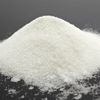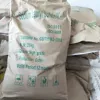Product Description
Sodium lauryl sulfate (SLS) is a surfactant, which basically means it has an effect on the surfaces it touches. It’s used in a variety of products such as food thickeners, toothpaste, and floor cleaners. Uses for Sodium Lauryl Sulfate All the soaps and cleaning products that you use are a mix of water and oil. But they don’t mix together on their own. Instead, surfactants bring them together. Soap's cleaning power comes from the bonded oil and water molecules rubbing against dirt and grease. That is why so many products have surfactants in them. They blend the ingredients that make cleaning happen. Sodium lauryl sulfate is very easy and inexpensive to make, and it works well in many situations. You'll see it listed as an ingredient in common products found in the home and in the workplace. Personal Products. These include things like: Body wash Hand soap Facial cleaner Bubble bath Toothpaste Shampoo SLS is also a foaming agent. Many of these products use SLS to give a foaming action during the cleaning process. If you have a foaming face wash or are working up a good lather with your shampoo, you're probably using something with SLS. Cleaning Products. Sodium lauryl sulfate’s ability to break down oil and grease lends itself well to industrial products. You can find it in household cleaning products as well as engine cleaners and industrial-strength soaps. Food. You may see SLS used in certain foods you eat, within limits approved by the FDA. As a food additive, SLS can make marshmallows fluffier and dried egg products lighter. It helps mix citrus and other acidic liquids with water to make fruit drinks. However, SLS is not allowed in food globally. In fact, it is banned from being used as a food additive in the European Union. SLS and Safety Your skin works hard to keep damaging things from getting through its top layer. Surfactants generally can be harmful because they can sometimes penetrate that layer. But experts say that SLS that gets through the skin is quickly broken down and turned into waste matter.


